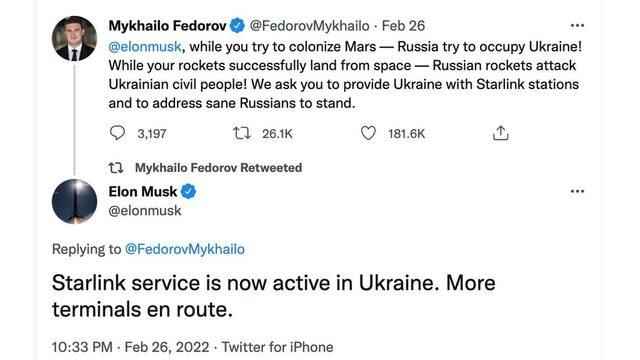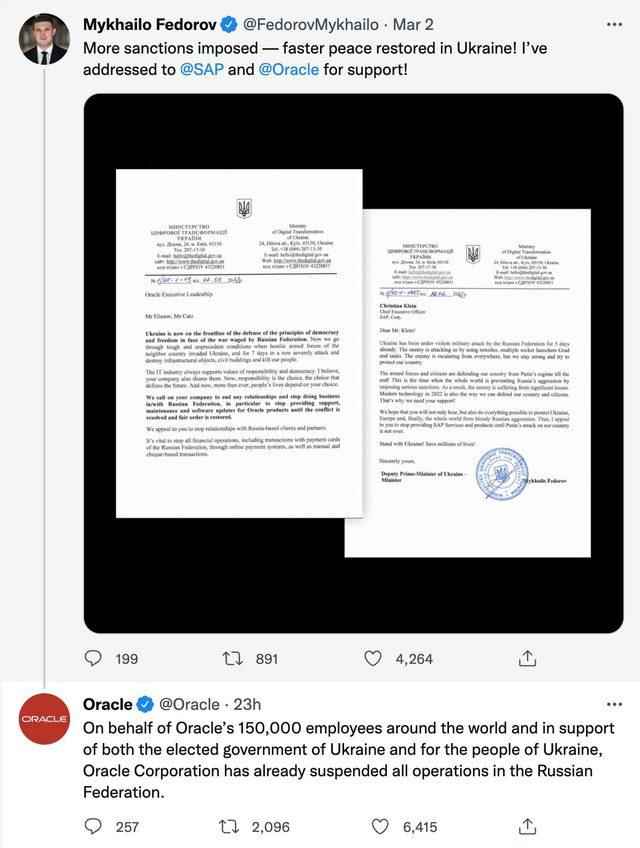A new front has opened in the war of the Ukrainian army and its people against the advancing Russian army: Technology. Under the leadership of Digital Transformation Minister Mikhailo Fedorov, steps are being taken to gain the support of Silicon Valley and weaken Russia. But there are also those who object to some of Fedorov’s tactics.
In an underground bunker in Kiev, the youngest minister in the Ukrainian cabinet is coordinating a digital war against Russia.
Mikhailo Fedorov’s weapon of choice is social media. Using Twitter, he is calling on big tech companies to stop working with Russia.
In the channel “Ukraine’s information technologies army”, which he founded in Telegram, he shares the targets he wants to organize a cyber attack in Russia.

The 31-year-old Fedorov’s role in government is closely linked to how he lives his life; Fedorov spends his life on a mobile phone.
Before the war, his main goal was to make all public services accessible from smartphones.
Now, because of the war, he had to interrupt this attempt and direct all his energies towards the war.
Fedorov pressured international companies to cut ties with Russia.
Apple, Google, Meta, Twitter, YouTube, Microsoft, Sony, Oracle… These tech giants don’t leave letters from governments unanswered.
Fedorov shared the letters he wrote to companies and the responses from some of them on social media.
While it’s impossible to know how much influence the companies had on their decisions, most companies ceased operations in Russia a few days after Fedorov’s call.
He was the first to announce on Saturday that PayPal would withdraw from Russia.
Samsung and Nvidia’s decisions were also first shared from his account.
A tweet he sent to Elon Musk shortly after the invasion began, gave quick results: The billionaire businessman adjusted the positions of Starlink satellites to Ukraine within 48 hours and sent them from Starlink terminals, which provide internet connection via satellite.
In the event that the internet or telecommunications infrastructure is cut or damaged, these terminals will enable the government to connect with the country and the world.
On the other hand, Musk said that satellite antennas could be targeted by the Russians and recommended that they be used only when needed.

Has over half a million followers
Fedorov has more than half a million followers on Twitter, Facebook, Instagram and Telegram. He shares his messages on all platforms in order to reach as many people as possible.
Answering the questions of the BBC by e-mail, Fedorov says, “Every platform is very important to us. We want to draw the attention of big companies to the terrible events in Ukraine. We also want to make the Russians tell the truth and protest their government.”
While most of their posts were in Ukrainian before the war, they now mostly post in English to speak to the world.
“Twitter has been one of our most productive tools to counter Russia’s military aggression. It’s a smart and peaceful tool we use to destroy the Russian economy,” he says.

Government puts NFT up for sale to fund military
Tech researcher and author Stephanie Hare says that Fedorov’s success does not surprise him:
“He’s 31. He knows these things.”
Persuasion and propaganda are among the tactics used in wars from time immemorial.
But Hare explains that with the start of social media companies in the 2000s, “the increase in the speed at which people can spread their messages changed all calculations.”
A spokesman for Fedorov says that the young team in the ministry is constantly generating new ideas, and the popular ones are put into practice.
A recent example of this was the government’s sale of NFTs to finance the military.
Fedorov demands that cryptocurrency exchanges freeze the accounts of all Russian citizens. Many people, including the founder of Binance, say that this will contradict the reason for the existence of cryptocurrencies. But some of his steps also created controversy.

Concern dominates the world of cybersecurity
The Ministry’s opening a Telegram account called “Ukraine’s information technology army” and bringing together volunteer hackers from all over the world also sparked criticism.
While the number of members of the group exceeds 270 thousand, Fedorov says “The best solution against tanks is technology” and adds:
“The IT army is targeting the digital and online resources of companies, banks and public institutions in Russia and Belarus. We succeeded in crashing the Russian public services, the sites of Tass, Kommersant, Fontanka and other Russian media.”
While the hacking activities have so far remained at the level of simple vandalism, Fedorov’s team openly calls for attacks on railways and power grids in Russia.
If these are successful, they can also harm civilians.
For this reason, there are also those who are concerned in the world of cybersecurity.
Suzanne Spalding, from the Center for Strategic and International Studies think tank, says, “It is very important to stay calm in the digital world. If civilians launch digital attacks that damage critical infrastructure facilities, it is difficult to predict what kind of retaliation will be made. On the one hand, the action of a civilian can suddenly increase tensions.”
The State Special Communications Office, which is in close communication with Fedorov’s ministry, defended the hackers’ attacks against Russia in a statement on Friday, saying, “Since the start of the invasion on February 24, the world order is not what it used to be.”
There are also digital attacks against Ukraine by pro-Russians.
But so far, the attacks affecting Russia seem to be in the majority.
Russia’s notorious military hackers have yet to play a major role in the war for reasons we don’t know.